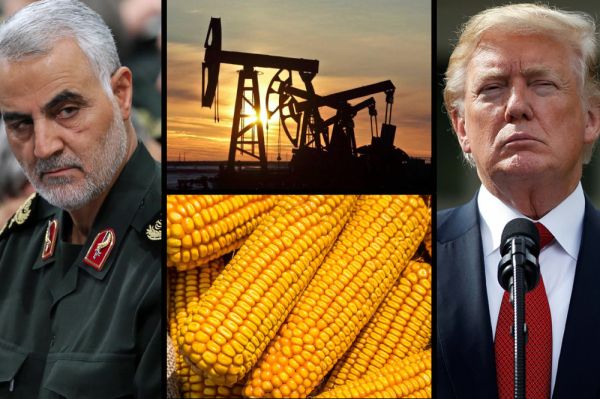Middle East crisis reflects in corn and soybean prices — opinion
The rise in oil prices, provoked by the U.S. assassination of the top Iranian general Qassem Soleimani, will drive up the prices for ethanol, and later for corn and soybeans. This is stated by Elena Neroba, Business Development Manager at Maxigrain, on Facebook.
With regard to agricultural commodities prices, most of the experts surveyed by Latifundist.com noted that it was too early to estimate as the volatility on the Chicago Stock Exchange on Friday was minimal and it was too early to connect it directly with a U.S. airstrike.
However, traders are getting ready for price adjustments.
"The world is already accustomed to Donald Trump's decisive and unpredictable style of government, but the assassination of Iran's highly respected General Soleimani is not just a way of power demonstration, but rather a way of public humiliation and expressing immense ambitions. But the U.S. President, before giving the order, this time faced a very difficult choice: to show "who's the boss" by burying any hopes of restoring the nuclear deal and peace in the Persian Gulf or to master his emotions and keep the oil price at a low level (which he really needs now). The first scenario was followed. As a result, oil price added 3.5% within one trading session on Jan. 3. Will it affect other commodities? Yes, but only if the conflict continues dynamically developing. Then we expect inflation to rise and economic growth to fall for the major world leaders — the USA and EU, the same is for net crude oil importers. And this combination of factors does not add enthusiasm to invest in commodity assets," commented Yuri Gavrilyuk, trader at Spike Trade, to Latifundist.com.
As a reminder, one of Iran's top commanders, Qassem Soleiman, was killed in a U.S. airstrike in Baghdad on Jan. 3. Oil futures in New York and London surged more than 4% after the airstrike. Iran’s Supreme Leader Ayatollah Ali Khamenei vowed "severe retaliation."

